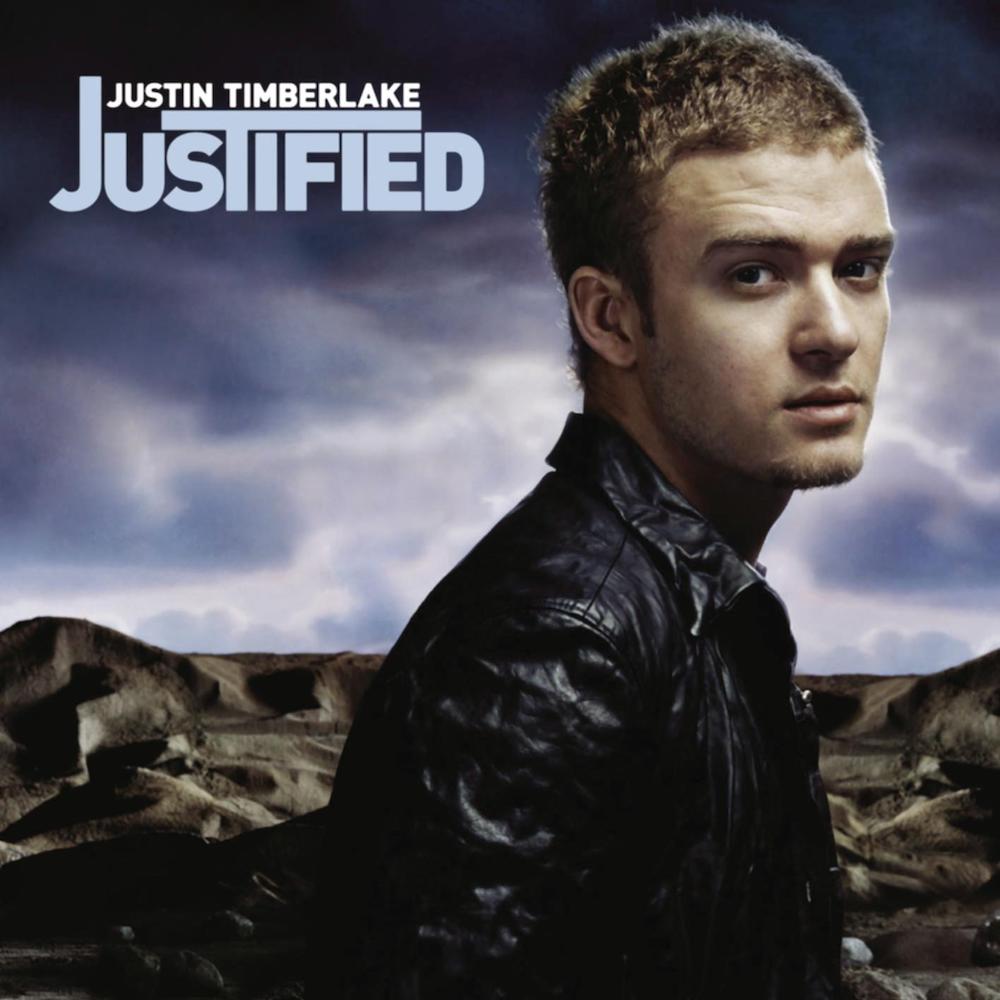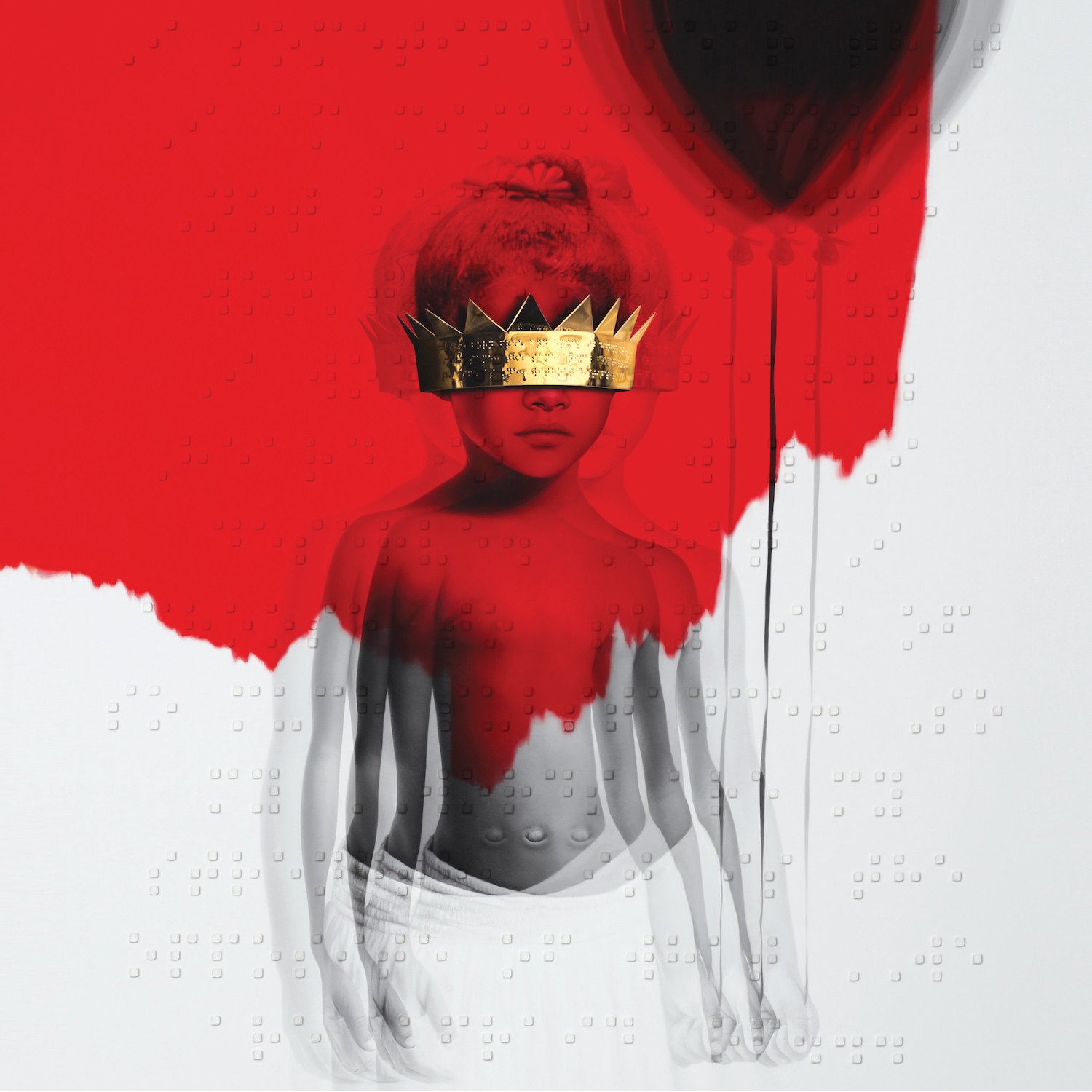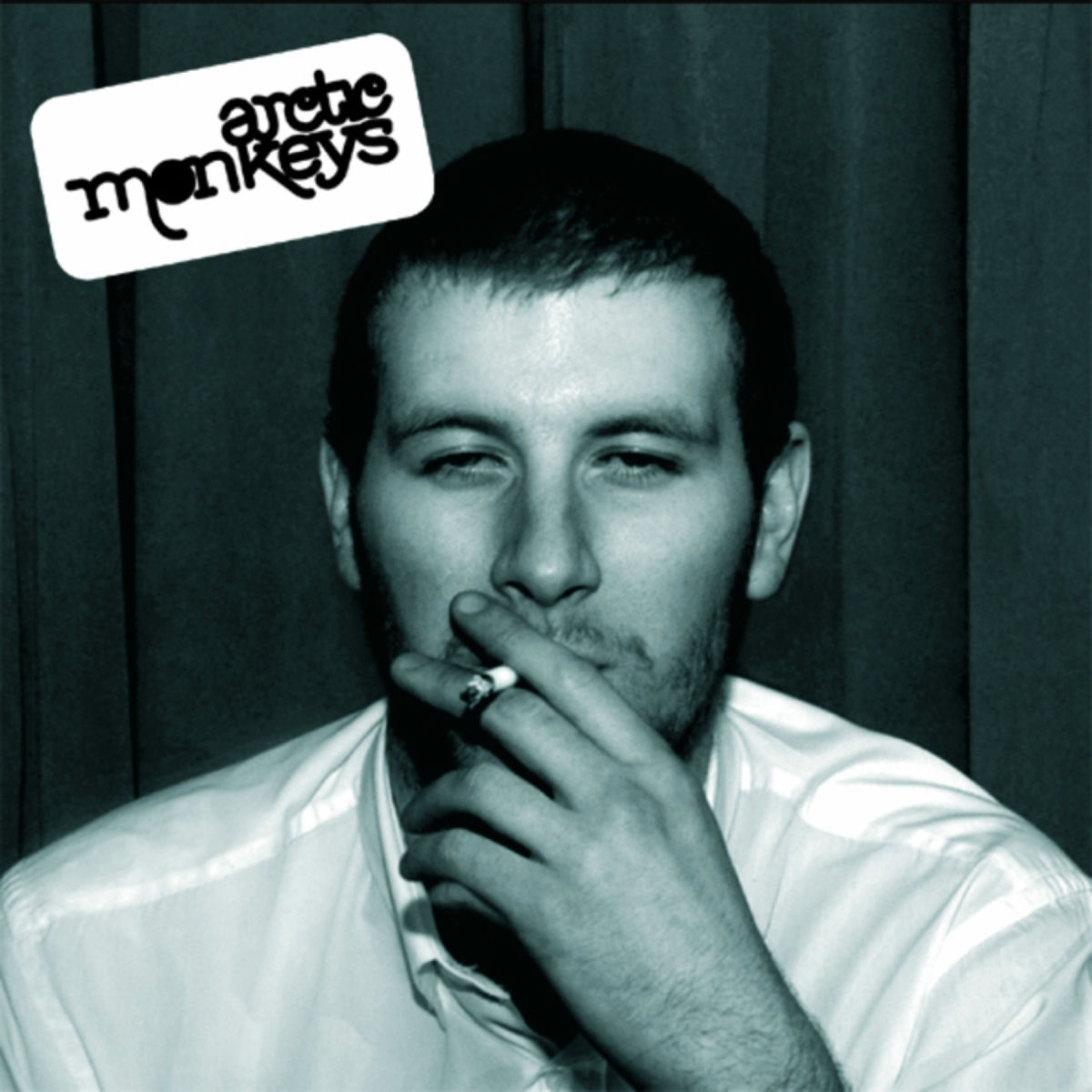- Jive
- 2002
Writing about Justin Timberlake’s debut solo album on its 20th anniversary feels like messy business. It's a case of two things being true: On one hand, Justified — Timberlake's first foray away from *NSYNC, released 20 years ago this Saturday — was a professional triumph, showing the world how the Mouseketeer-turned-teen idol could launch a successful solo career; on the other hand, who did he trample on in order to achieve that? Some very famous women, as it turns out. Women who, despite their own career accolades, had already spent their lifetimes grappling with foundational patriarchal forces driving the music industry, the media, and society at large.
Now, I'm not suggesting that Timberlake should have spent time unpacking the way gender roles determine outcomes in the music industry in 2002. He was a 21-year-old bro-dude from Tennessee who became famous at a very, very early age. His brain was not finished developing yet, and a lot of people who get famous at a young age actually stop aging, emotionally speaking. (I'm really doing my best to be compassionate here.) And Timberlake is hardly the first person to write what essentially boils down to a breakup album.
But: There's writing a breakup album to achieve emotional catharsis, and then there's what Timberlake did. Late-*NSYNC Justin Timberlake wanted to be seen as a "serious" musician, and yes, he'd been through what sounds like a brutal breakup of a formative relationship. So he took elements from his personal life, spun them into a misogynist narrative, and stuck them into the commercial-music vending machine with a specific goal in mind: to get really, really famous. Just not boy-band famous.
Timberlake was at a curious crossroads in 2002. *NSYNC was on hiatus after releasing their fourth album, 2001’s Celebrity, and Timberlake had become the band’s de facto frontman, along with, to a certain extent, JC Chasez, who also tried, albeit with more limited success, to launch a solo career. As the Y2K boy-band boom began to level off, the label heads at Jive Records were no doubt eyeing Timberlake as their incoming cash cow, their next Michael Jackson. Timberlake seemed more than happy to oblige.
What Timberlake should have been held accountable for then (and arguably ever since) is the unforgivable way he gave himself over to his own ambition. In his 2007 memoir, former *NSYNC member Lance Bass wrote about the way Timberlake effectively broke up with *NSYNC by accusing the other four members of focusing too much on their own ventures. "He didn't think any of us was operating in the best interest of the band," Bass wrote at the time. "I asked him what he meant by that, and he said: 'Well, you know, when y'all did your movie,' meaning Joey [Fatone] and me [and their 2001 film On The Line]."
Bass continues: "I couldn't believe it. That sounded like the lamest excuse imaginable. Joey and I looked at each other in amazement. According to Timberlake, the whole reason for the break up of *NSYNC was everyone else's fault? That was crazy! All of us had done nothing but wait around for him to feel he was ready to start work on a new *NSYNC album."
Then, there's the most damning accusation of all — the way Bass connects the breakdown of Timberlake and Britney Spears' relationship to Timberlake's hunger for celebrity. Bass writes:
At the time, [Britney] struck me as an adorable little teenage girl at a perennial slumber party - staying up late and having a lot of fun. She showed no signs of the turmoil she would eventually encounter, maybe because she was so in love with Justin she thought it was going to last forever.
I knew it wouldn't. Justin already had a great love in his life — his career. He wanted to be a star, and no girl, no matter how great, was going to be able to distract him from that for more than a night or two between trips to the center of the spotlight.
And hadn't Justin made a movie (2000's Model Behavior) the year before we did ours?
I felt completely betrayed… It pissed me off that Justin's life got set up perfectly before he came back to the rest of us… Justin's time to become a solo star had arrived.
Compare Bass' read on the situation with Timberlake's aw-shucks attitude while promoting Justified – any time he was asked about the album's content that could be about Spears (and he was asked about it a lot), Timberlake’s demeanor was that of the bigger person. The wounded, wronged sad boi, but one who'll be there for his ex should she really need him. As Timberlake told Barbara Walters in his infamous 20/20 interview: "I remember when we decided we were going to go our separate ways, we sat down and I said to [Britney], 'If there's ever a moment where you ever need me, you can rest assured that I will be there, because I love you as a person and I will always love you.' But I also said, 'Look, no matter what we say at this point people are going to speculate things, and I could really get myself in a horrible position if I was to say something and somebody misinterpreted, because that happens all the time.' And I promised her that I wouldn't say specifically why we broke up."
Today, it's long-understood celebrity lore that Justified — and its single "Cry Me A River" in particular — was a reaction to Spears' (alleged) infidelity during her three-year relationship with Timberlake. Neither party to this day has ever said what really happened, but the audience/media response to "Cry Me A River" — and its thinly veiled music video where a Britney lookalike cheats on and abandons Timberlake — was wildly one-sided, to say the least. Timberlake seemed content be the bro-with-a-heart-of-gold victim while the media annihilated his ex. That shtick sold millions of records. It's basically why The Bachelor franchise makes every contestant tell their individual sob stories to boost ratings. Today, doing what Timberlake did would seem nakedly cruel, like emotional revenge porn. In 2002 though? The words "revenge porn" didn't exist yet. Timberlake looked like a sensitive nice-guy bro doing the absolute bare minimum by admitting he'd gotten hurt in a breakup.
Back to Timberlake's ambition, though. Maybe I’m obsessing about extreme fame because I recently watched Tár, a movie that examines the costs of EGOT-level stardom (in the classical-music community, which serves as a stand-in for any artistic community) and who gets hurt in the process when someone with lofty ambitions treats all relationships as transactional. I’m not saying this is exactly what Timberlake has done, but I do think there are obvious parallels. And in the wake of the #FreeBritney movement, as well as the ongoing re-examination of Janet Jackson’s post-2004 Super Bowl career, audiences are rightly calling him out for taking advantage of — or at least being wayyyy too passive in — his early-career circumstances. Plus, Gen Z seems to think today's Timberlake is extremely cringe, and they’re not wrong.
https://youtube.com/watch?v=Z64ByRznwQw
To grasp Timberlake's hunger for an air of authenticity, you have to understand just how not-taken-seriously boy-band music was in the '90s and early '00s. Despite the dozens of TRL countdown victories, hundreds of sold-out arena concerts, and millions of albums sold, bands like *NSYNC and the Backstreet Boys (as my colleague Tom Breihan has pointed out in his Number Ones column) tended not to produce #1 Billboard hits. Critically, boy bands earned eye rolls compared to what was perceived as being more legitimate musical acts of the time, acts that played their own instruments and catered to adults. In his 2003 Rolling Stone cover story, Timberlake sounds relieved that Justified had vaulted him up to the status of a real musician, telling the magazine: "Do I think that what I've done with [Justified] is 10 times better than anything *NSYNC has ever done? Yes, I do. But I'm a cocky bastard." Yes, yes he is.
Timberlake began work on what would become Justified after *NSYNC completed their 2002 Celebrity tour. Pharrell Williams and Chad Hugo, the buzzy production duo known as the Neptunes, got on board to produce and co-write, as did Timbaland, P. Diddy, Scott Storch, Brian McKnight, and the Underdogs (aka the now-CEO and President of the Recording Academy Harvey Mason Jr. and Kim Kardashian's then-husband Damon Thomas). A chunk of the songs were originally written for Timberlake's hero Michael Jackson, but when Jackson reportedly turned down the tracks, they were modified for Justified.
The album itself was written and recorded quickly — in just six weeks at Westlake Recording Studios, Manhattan Center Studios, and Master Sound Recording Studios and Windmark Recording in Virginia Beach. At that time, the Neptunes and Timberlake listened to Earth, Wind & Fire albums plus Jackson's blockbusters Off The Wall and Thriller. As Hugo told MTV, their intention was to create songs that bore similarity to Jackson without "recycling" anything. Hugo also confirmed that "there could be songs about" Timberlake's breakup with Spears, adding: "Everyone incorporates their personal lives into their songs."
Musically, Justified owes a great deal to the Neptunes, whose fizzy, minimal robot funk was ruling mainstream music at the time. The duo — who'd previously been called in to add hip-hop flair to *NSYNC's Celebrity single "Girlfriend," and who'd provided a similar service to Spears with 2001's "I'm A Slave 4 U" — produced the majority of the hits from Justified, including its Latin-styled opener and fourth single "Señorita." Those MJ-inspired Neptunes beats helped Timberlake seamlessly transition from teen-idol status into the realm of adult pop stardom, but Pharrell and Chad weren't just implicitly justifying Timberlake via their presence; they started the album by literally vouching for him. The first voice you hear on Justified is Pharrell's, who introduces his "friend... all the way from Memphis, Tennessee." Timberlake and the forces surrounding him likely knew he’d need a bunch of co-signs to make the leap he was attempting; on that intro it's as if Pharrell is telling us, "Hey, it's OK. He's cool. He's with me."
Meanwhile, lead single "Like I Love You" rides along on a wave of choppy beats, start-stopping acoustic strums, and Timberlake's own Jackson-imitator staccato breaths. Two decades later, "Like I Love You" definitely comes across better than "Señorita," which suffers from white-guy overconfidence disguised as more aw-shucks sheepishness. And that's in addition to Timberlake's blatant cultural appropriation, which is blanketed across the entirety of Justified.
As Jamilah King wrote in ColorLines in 2013:
With production by Timbaland, the Neptunes and P. Diddy, Timberlake’s solo debut, Justified, thrived on his novelty: He was the white boy with the bleached blonde fade and vague hip-hop swagger who could really sing the black music he unabashedly recorded. Image-wise, he picked, chose, and performed suave and often provocative black masculinities embodied by the likes of James Brown, Michael Jackson, and Prince. For that he was richly rewarded; the album sold more than 7 million copies worldwide and he won two Grammys, ironically for Best Pop Vocal Album and Best Male Pop Vocal Performance.
Where Timberlake leans hardest into the broken bro persona is on "Cry Me A River," the album's highest-charting single. A Gregorian chanting pop-R&B ballad unlike anything else on Justified, it's significant within the scope of Timberlake's career as his first collaboration with Timbaland, who'd become his most trusted producer going forward. Today "Cry Me A River" lives in infamy as 1) a classic breakup song and 2) the piece de resistance in the campaign to cast Britney Spears as the cheating, betraying antagonist in the pair's split.
To say the media leapt on this narrative would be a massive understatement. And Timberlake did nothing to dissuade them. In that now-infamous interview with Barbara Walters, Timberlake played an unreleased Justified track called "Horrible Woman" on the piano: “Frankly, baby, you ain’t worth the gas in my BMW/ But to look at it positively/ At least you gave me another song about a horrible woman/ And that's you." Classy!
Across the entirety of Justified, Timberlake wears a few different hats: the aforementioned scorned ex ("Cry Me A River"), the bleeding-heart ex ("Still On My Brain," "Never Again"), the oh-so understanding potential boyfriend ("Let's Take A Ride," "Señorita"), and the man-about-town casanova who’ll "have you naked by the end of this song" (as heard on third single "Rock Your Body"). We all know how the getting naked part went at the 2004 Super Bowl Halftime Show, where Timberlake performed with Janet Jackson, his idol's sister. Jackson's "wardrobe malfunction" experience that night is like a super, super-amplified version of the social politics around women sleeping with men. The man gets high-fived, and the woman gets condemned. Timberlake got to gee-whiz giggle his way through a half-baked apology, and Jackson’s commercial career never really recovered. You know the rest.
The more I look back at Justified and watch and read old interviews with Timberlake, the more I want to exclaim about how Justin Timberlake is pop music’s Lydia Tár. Tár is a fictional character, yes, but both figures represent a strategic sussing out of the system they want to dominate. They suck up and play a certain way to the right people, and ultimately throw absolutely everybody in their way under the bus in order to sit atop the throne, whether it be in classical music or pop. (For the record, I realize Tár doesn’t judge its subject, but I think there's a lot in there about power structures, the people we foist to the top, and the way we enable them if their success happens to serve us.)
Timberlake, in recent years, has received a certain comeuppance. After releasing more successful albums — 2006’s FutureSex/LoveSounds and 2012's The 20/20 Experience — and appearing in highbrow films like 2010’s The Social Network and 2013's Inside Llewyn Davis, and returning to the Super Bowl stage in 2018, his too-big-to-fail pop star status has faltered. In 2018, his Bon Iver-appropriating Man Of The Woods era was (rightly) laughed out of the room and memed to hell. Last year, the #FreeBritney movement, combined with the Janet Jackson cultural reassessment, forced Timberlake to apologize for his outsized role in launching a solo career at the clear expense of both women.
Then there’s everything else: Timberlake was caught cheating on his wife, Jessica Biel, with a co-star; he starred in Woody Allen's Wonder Wheel despite the pedophilia allegations surrounding the director; and he wore a Time's Up pin to the 2018 Golden Globes. In an Instagram post, Timberlake captioned: "DAMN, my wife is hot! #TIMESUP," missing the point of "Time's Up" so completely it’s actually hilarious. And we haven't even touched on the truly bad khaki dancing.
Still, Timberlake will likely never see any real retribution for launching Justified — and his entire solo career — by blatantly appropriating Black and Latinx culture and hurling women under the bus to get ahead. I think Maria Sherman captured this perfectly when she wrote for Slate last year:
But his lapse from the role of cultural darling is hardly a professional demise. Timberlake was simply given an opportunity that Britney Spears and Janet Jackson never got: to ease gently out of the spotlight, to step into the background but not to suffer because of it. He never faced the same harassment from paparazzi or the press that the women around him did, and his career has never really stalled. He performed at Joe Biden’s inauguration ceremony in January and has also been back in the studio—writing the flaccid feel-good song "Better Days" with singer-songwriter Ant Clemons. Hell, Trolls World Tour broke digital box office records and made $100 million in rentals alone last year. In January, Timberlake appeared on his good friend Jimmy Fallon's Tonight Show, teasing new music. Since then, he’s been lying low amid comeback album rumors, waiting patiently, it seems, for his opportunity to reemerge. After all, Timberlake is a trained chameleon — ready to shapeshift to suit what he thinks the public wants.
Now, do I think Timberlake was some kind of evil misogynist Svengali in 2002? No, not at all. I think he was just some guy. Some guy with a bit of talent, a whole lot of charm, good taste in classic pop music, and a willingness to do what the machine asked of him in order to sell more records. Justified still sounds good, because how could a record not sound good with all of those power players working to make it a success? But 20 years later, we've seen too much. Our understanding of the world has deepened. The cultural context has changed to such an extent that Justified no longer belongs in the "classic" pop canon — if it ever did in the first place.
We rely on reader subscriptions to deliver articles like the one you're reading. Become a member and help support independent media!






